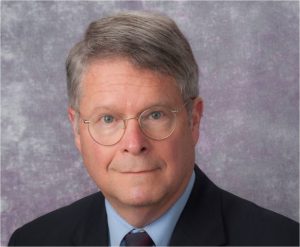Podcast: Play in new window | Download
 I’m Dan Lukasik from Lawyerswithdepression.com. Today’s guest is Dr. Charles F. Reynolds, III, co-author of the book, “Depression and Anxiety in Later Life: What Everyone Needs to Know.” He is a professor in Geriatric Psychiatry at the University at Pittsburgh School of Medicine and Director of its Aging Institute and Center of Excellence in the Prevention and Treatment of Late Life Mood Disorders. Dr. Reynolds is internationally renowned in the field of geriatric psychiatry. His primary interests focus on mood, grief, and sleep disorders in later life. Thanks for being here with us Dr. Reynolds.
I’m Dan Lukasik from Lawyerswithdepression.com. Today’s guest is Dr. Charles F. Reynolds, III, co-author of the book, “Depression and Anxiety in Later Life: What Everyone Needs to Know.” He is a professor in Geriatric Psychiatry at the University at Pittsburgh School of Medicine and Director of its Aging Institute and Center of Excellence in the Prevention and Treatment of Late Life Mood Disorders. Dr. Reynolds is internationally renowned in the field of geriatric psychiatry. His primary interests focus on mood, grief, and sleep disorders in later life. Thanks for being here with us Dr. Reynolds.
I think the first place to begin for our audience and listeners is to have an understanding of what clinical depression is.
Dr. Reynolds:
The term clinical depression really refers to a syndrome or collection of symptoms which are debilitating and cause suffering and distress. At the core of the notion of clinical depression are two symptoms. The first is a lack of pleasure or interest in usual activities. The clinical term for that being anhedonia and the other core aspect of depression is a persistent lowering of mood – a sense of sadness and pessimism or even of hopelessness. These symptoms occur most days for at least two weeks and typically for a longer period of time and then as the full syndrome of depression develops, Dan, you also see other changes, for example, in sleep, concentration, or appetite, or energy levels and of great importance is the emergence, in many people, of suicidal feelings as part of the clinical syndrome of major depression.
Dan:
Part of the title of your book is anxiety – what is clinical anxiety?
Dr. Reynolds:
Well, like depression, clinical anxiety refers to a syndrome or collection of symptoms that are both distressing and impairing in day-to-day function. The principle types of anxiety are first, excessive worrying such as we see in generalized anxiety disorder or panic attacks such as we can see in panic disorder with or without agoraphobia. Like depression, anxiety disorders can be quite debilitating and distressing. It is also important to understand that anxiety and depression can co-occur in the same patient and often represent risk factors for each other.
Dan:
In the book title you say depression and anxiety in later life. When you talk about “later life,” what does that mean?
Dr. Reynolds:
Later life generally refers to folks sixty and older. That varies somewhat according to the study that you’re reading, but most of us accept age sixty or sixty-five as a threshold for beginning the later years of life. That being said, Dan, it’s important to understand that the later years of life can and often do cover several decades. And so we often speak of “young old,” say sixty-five to seventy to eighty, and “old-old” as covering the years beyond seventy-five or eighty. That distinction, young-old and old-old is important for clinical practice because the various benefits and risk of the treatments that we have may shift gradually with the age of the patient.
Dan:
When we think of depression in our society, how common is depression statistically and is there any difference in the older population?
Dr. Reynolds:
If you look, Dan, at primary care medicine clinics where most people get treatment for depression, older adults, if they get treatment at all, at any one point in time six to ten percent of the patients attending primary care clinics will have major syndromal depression and then another ten percent or so will have a clinically significant level of depressive symptoms. So this is by no means a rare disorder. The other important thing to remember, and this is to your point about depression’s occurrence in older adults, it frequently coexists with medical issues and often with cognitive issues as well. The depression typically doesn’t exist in pure culture, but rather is an “unwanted co-traveler” of many of the common medical problems that afflict older adults and thereby amplifies the disability and distress of those disorders.
Dan:
What causes depression, Dr. Reynolds? When we think of depression – and we’ve come a long way in understanding some of the causes – many people don’t know the difference between sadness or “the blues” and clinical depression. What are we talking about? What are the causes?
Dr. Reynolds:
The causes are many, Dan, and I think it’s very helpful to think in terms of there being many pathways to depression in older adults. In some cases, it’s possible that there is a genetic cause because depression can run in families. Although in late life, depression, we think that genetic factors are maybe less important than they are in younger adults or kids who develop depression. Depression also occurs in the context of the life events that can occur in later life such as bereavement or other major transitions in social role functions. It’s also not unusual to see depression in the wake of certain medical events like a heart attack, or a stroke, or depression to develop in the context of things like age-dependent macular degeneration which results in a decreased ability for a person to see. These are important contextual factors and a good treatment plan will take these contextual social and medical factors into account.
Dan:
When we think of depression, once it’s been diagnosed, what can older adults do to manage depression?
Dr. Reynolds:
I think there are many things that older adults can do, Dan, but also they can be helped by family members and caregivers as well. This is a key point. I almost always will try to see family members and caregivers as well as the adult with depression themselves. Adopting a healthy lifestyle is very important set of strategies, Dan, both for preventing and treating depression and among these healthy lifestyles are physical activity, maintaining good social connections, and social support, and getting primary medical problems attended to such as blood pressure, blood fat, and blood sugar levels and having your immunizations and cancer screenings done on time. Behaviorally, it’s very important for people to engage in the activities that give them pleasure. Behavioral activation, as we call it, is at the core of many psychosocial treatments for depression including problem-solving therapy, cognitive and behavioral therapy. Medications are also very helpful. There are antidepressant medications now available which are safe and generally well tolerated by older adults. I would say that upwards of eighty percent or eighty-plus percent of older adults with depression can be successfully treated to good response if not remission particularly using a combination of counseling and medication and then we have other treatments for other people whose depressions are difficult or resistant to treatment.
Dan:
Let’s turn our attention now to the topic of anxiety and that’s certainly an important topic you address in your book where you talk about anxiety in later life. For our audience, what is anxiety? We talk about it. A lot of people talk about being “stressed out”. We’re a stressed-out culture. But what is the difference between stress, being stressed-out, and true clinical anxiety?
Dr. Reynolds:
That’s good, Dan. You’ve made an important distinction there. All of us can experience stress, for example, in relation to life events which feel threatening to us or which seem to turn our worlds upside down, but there is a difference with anxiety disorders. Anxiety disorders are constituted by specific symptoms that often last for months and months and months and can be disabling and distressing. Principal among these things are obsessive worry or panic attacks which seem to come out of nowhere. These constituent actual distinct mental disorders and there are useful treatments for them. We rely heavily, for example, on teaching people relaxation techniques as well as better problem solving skills. There’s a good deal of literature also to support the use of medications called Selective Serotonin Reuptake Inhibitors. These are medications that have shown to be effective in the treatment of anxiety disorders in older adults. The reasons you want to treat these disorders is that the symptoms are burdensome, they cause distress and impairment, they undermine the quality of life, and also increase the risk for depression.
Dan:
When we talk about clinical depression and clinical anxiety, and you’ve just done a wonderful job of distinguishing them from everyday sadness and everyday stress, do they ever happen together? Can we have a person who has both clinical depression and anxiety?
Dr. Reynolds:
We see that, Dan, in really about a third of our patients. So at any one point in time, probably a third of our patients with major depression, also can be diagnosed with one or another anxiety disorders. So they do co-occur and they need to be treated. Sometimes it can be challenging to treat that combination, but we learned how to do that. The other thing to remember though is that people living with anxiety disorders are at risk for the subsequent onset of depression. So it’s important for that reason to address anxiety disorders. The other part of this constellation that I like to pay a lot of attention to is sleep disturbance. Sleep disturbances themselves represent a risk factor themselves for the onset of common mental disorders. Sleep disturbances are also a symptom of common mental disorders and when I’m treating depression or anxiety and my patient continues to have sleep disturbance, then I focus additional effort on helping them to get a better night’s sleep because if their sleep disturbance isn’t addressed independently, then it constitutes a risk factor for an early relapse or recurrence of depression or anxiety.
Dan:
Can you tell us a little more about your work at the Aging Institute at the University at Pittsburgh Medical College and the Center and Treatment of Late Life Mood Disorders?
Dr. Reynolds:
For the last five years I’ve served as Director of the Aging Institute at the University at Pittsburgh Medical Center. The Aging Institute was created by the UPMC Health System and its health plan and also by the six schools of the Health Sciences at the University at Pittsburgh and by the Provost at the University at Pittsburgh. Basically, Dan, we do three things. We geriatricize the work force. That is to say we teach the skills of caring for older adults to clinicians across all parts of medicine: doctors, nurses, pharmacists, social workers, etcetera. The second thing that the Aging Institute does is to develop new models of care to improve the long-term delivery of care to older adults and their family members. And finally, the third thing we do is to sponsor research. We are very interested in innovative pilot research that can lead subsequent National Institute of Health and other federal support. The other thing I do at Pitt is to direct the Center for Depression Prevention and Treatment Research. This is a Center of Excellence, one of only two or three in the United States funded by the National Institute of Mental Health. We have been working now since 1995 and are in our twenty-first year. We do a great deal of intervention research. We also train the next generation of younger scientists, both physicians and Ph.D.’s, to do intervention research in older adults at risk for living with mood disorders like major depression or bipolar disorder.
Dan:
One of the things you mention in your book, and by the way, it’s a remarkable, insightful read, “Depression and Anxiety in Later Life,” one of things you mention in your book, you talk about the importance for older people to find and maintain a sense of purpose. Why is that so important and how do older people go about finding a sense of purpose if it’s lacking?
Dr. Reynolds:
Yea, it’s a really key point, Dan, and I think that all of us need to have a sense of purpose; a sense that our lives matter to other people to help us get up in the morning. Feeling a sense of connection, feeling a sense of belonging is very strong medicine to preserving a sense of wellbeing throughout all of the years of life. There’s also a substantial body now of research, of epidemiological research, that shows that being a member of a community of faith may both help buffer depression and but also help to recover from depression and keep it at bay. So I think that’s one key strategy to create a sense of belonging and purpose. Those are two key words that I like to use – belonging and purpose.
Dan:
And in closing Dr. Reynolds, for those in our audience that are interested in this, interested in being evaluated and treated at your center, how do they go about doing that?
Dr. Reynolds:
You can give us a call in Pittsburgh. We are happy to take calls. We’re also happy to help callers find local resources from wherever they may be calling because we’re part of a network of colleagues around the country. One good way to seek help though is to call the help desk at the University at Pittsburgh Medical Center because we’re able to connect callers with all kinds of resources they may need. We typically get over 600 calls per year now, both from family caregivers and health care professionals. I recommend that people visit our website or call us at 866-430-8742.
Dan:
Dr. Reynolds, thank you so much for taking the time to talk with us today. It’s been very informative, insightful and encouraging. I’m Dan Lukasik with Lawyerswithdepression.com. Join us next week for another interesting interview.











